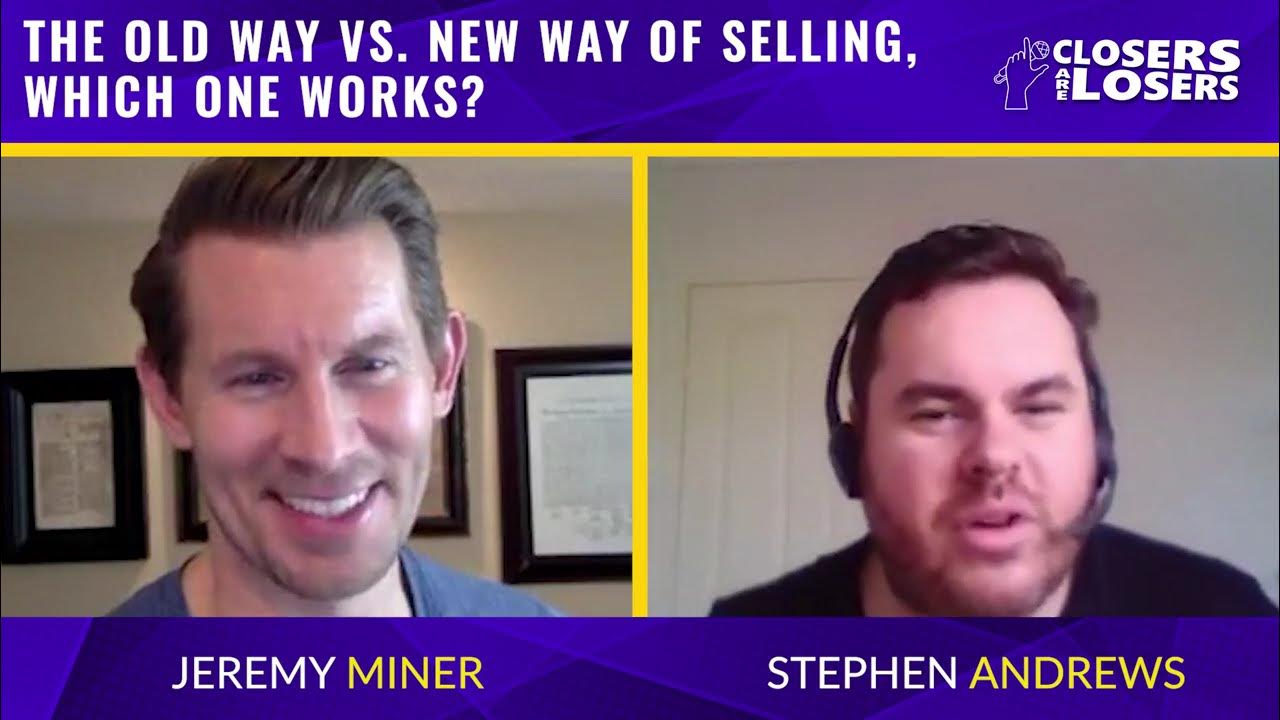Techniques And Tactics Proven To Unlock Your Sales Potential | Sales Techniques
Summary
TLDRIn this sales training transcript, Dana shares her journey from a novice to a top-earning salesperson, highlighting the importance of asking connective, situational, and problem-awareness questions to build trust and uncover customer needs. She emphasizes the significance of tone and pacing in questioning, and how these techniques lead to better conversations and higher sales conversion rates. Dana also stresses the value of continuous learning and adapting to new sales strategies for success.
Takeaways
- 📝 Connective questions are crucial for understanding the source of leads and their recent interest in the product or service.
- 🗣️ Prospects usually respond better when questions are asked with a curious tone, which encourages them to provide more information.
- 🔍 It's important to ask about the lead's recent actions, such as responding to mailers, Facebook ads, or other marketing efforts to gauge their engagement.
- 🌐 Leads come from a variety of sources including mailers, internet, and TV, indicating a need for a multi-channel marketing approach.
- 💬 High-quality conversations build trust, which is essential for sales and closing deals.
- 🔑 Situation questions help both the salesperson and the prospect understand the prospect's real situation, which is often not well understood by the prospect themselves.
- 🚨 Problem awareness questions are vital for making prospects realize the extent of their issues, which can lead to a solution.
- 🏦 In the life insurance industry, asking about current protection or savings in place for funeral and final expenses is a key situation question.
- 🤔 Solution awareness questions prompt prospects to envision a future where their family is financially protected and there's no burden.
- 💼 Commitment questions, such as 'Do you feel like this could be the answer for you?' are effective in getting prospects to commit to the next step.
- 📈 For salespeople, being open to learning new techniques and unlearning bad habits is crucial for improving sales performance and increasing earnings.
Q & A
What is the average age of leads before they get a call in the sales industry?
-The script does not specify an exact average age of leads, but it does imply that many leads are recent, having just requested information through mailers, Facebook ads, or other means.
What is a connective question that salespeople are trained to ask?
-A connective question mentioned in the script is, 'What was it about the ad that prompted you to inquire?' This question is designed to slow down the conversation and elicit a thoughtful response from the prospect.
How does asking connective questions improve the quality of conversations in sales?
-Asking connective questions leads to more information being provided by the prospect, rather than the salesperson making assumptions. This results in better quality conversations that build trust and can lead to more sales.
What is a situation question that helps salespeople understand a prospect's real situation?
-An example of a situation question is, 'What type of protection, if any, do you currently have in place for your family?' This question helps the salesperson understand what the prospect currently has in place regarding insurance or savings.
Why are situation questions important in the sales process?
-Situation questions are crucial as they not only help the salesperson understand the prospect's current situation but also allow the prospect to realize their situation, which is essential for identifying gaps and making a sale.
What is a problem awareness question that can reveal more issues than the prospect initially thought?
-A problem awareness question from the script is, 'Do you want [family member] to have to pay for all that if you didn't have to?' This question helps the prospect consider the financial burden on their family in the event of their passing.
How do salespeople use the responses to problem awareness questions?
-Salespeople use the responses to problem awareness questions to empathize with the prospect and deepen the conversation, ultimately aiming to understand the prospect's concerns and financial situation better.
What is a solution awareness question that helps prospects envision a future with their problem solved?
-A solution awareness question could be, 'What's prevented you from doing this in the past?' This question helps the prospect consider what has stopped them from finding a solution and envision a future where the problem is resolved.
Why is it important to ask commitment questions in the sales process?
-Commitment questions, such as 'Do you feel like this could be the answer for you?' are important as they gauge the prospect's readiness to take the next step towards purchasing a policy or product.
What advice does the experienced salesperson give to new salespeople or veterans looking to improve their sales?
-The advice given is to be open to learning new methods, unlearn bad habits, and not be afraid of the investment in training because the return on investment can be almost immediate.
How does the script suggest salespeople can achieve higher earnings in their industry?
-The script suggests that by acquiring advanced sales skills, such as those taught in the training mentioned, salespeople can increase their earnings significantly, with some reaching well into the high five figures per month.
Outlines

此内容仅限付费用户访问。 请升级后访问。
立即升级Mindmap

此内容仅限付费用户访问。 请升级后访问。
立即升级Keywords

此内容仅限付费用户访问。 请升级后访问。
立即升级Highlights

此内容仅限付费用户访问。 请升级后访问。
立即升级Transcripts

此内容仅限付费用户访问。 请升级后访问。
立即升级浏览更多相关视频

Effective Connecting Questions For Selling | Sales Tips

Questions to ALWAYS ask on the car lot as a Car Salesman - Car Selling Tips

The Old Way vs New Way of Selling, Which One Works?

Want to Improve Your Sales Results? Ask This Question

Is It Better To Be Neutral Or Assertive When Using NEPQ?

[VENDAS PELO WHATSAPP] - Script PRONTO para fazer o CLIENTE te RESPONDER IMEDIATAMENTE | GM
5.0 / 5 (0 votes)
